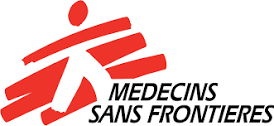GAZA: MSF teams treat patients injured in Israeli attacks 19 November
MSF denounces yet more bloodshed in Gaza, as our teams continue to treat critically wounded Palestinians caused by Israeli airstrikes and quadcopters on 19 November, which have left dozens dead and scores more injured. Since Wednesday, our teams have treated both women and children with open fractures and gunshot wounds to their limbs and head.
"At around 11am we heard gunfire from quadcopters. Shortly after, we received two casualties,” says Zaher, an MSF nurse working at a mobile clinic in Gaza City. “The first casualty was a woman with a leg injury. A little later, a nine-year-old girl arrived with an injury on her face caused by gunfire from the quadcopters.”
Our medical teams working in mobile clinics in Kamal Adwan in Gaza City, as well as at Al Shifa, also in Gaza City and Nasser hospital in Khan Younis, treated at least six patients, including one 15 year-old and one 71-year-old man, with wounds caused by Israeli airstrikes and bullets. Many more were treated by ministry of health staff at these facilities and staff at Al Ahli hospital in Gaza city, where MSF also supports.
“I heard the sound of a missile, then a second missile, and then I lost consciousness... I opened my eyes and saw my father on the ground, and I saw my three brothers on the ground, covered in blood and dust was everywhere,” says Mohammed Malaka, a patient at Al Shifa hospital. “I could hear people screaming everywhere... the tents had become ashes, and people were lying on the ground everywhere,” he says.
This is the latest wave of Israeli violence in a series of attacks on Palestinians in Gaza that has so far killed more than 300 and injured over 760 since 11 October, according to the Ministry of Health. After two years of relentless war and horror, Palestinians are now displaced, exhausted, and face a cold winter without basic necessities amidst intermittent Israeli attacks across the Strip. We continue to call for the protection of all civilians, healthcare staff and facilities.
Hannah Hoexter
